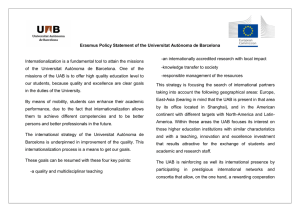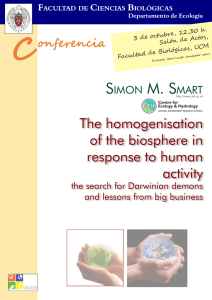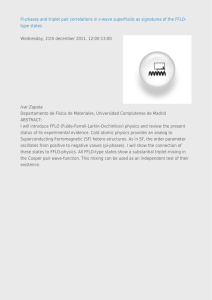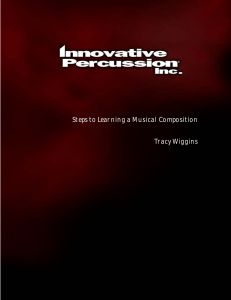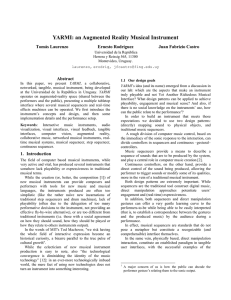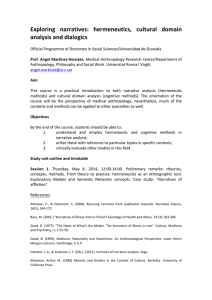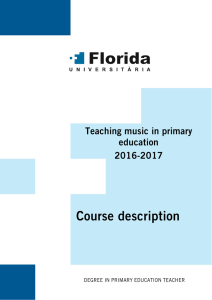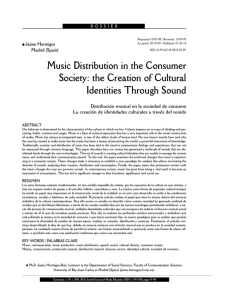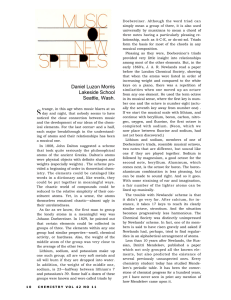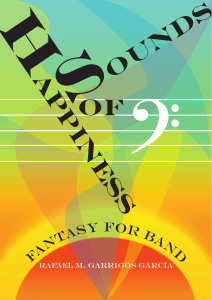1st CONFERENCE IN ETHNOMUSICOLOGY AND
Anuncio
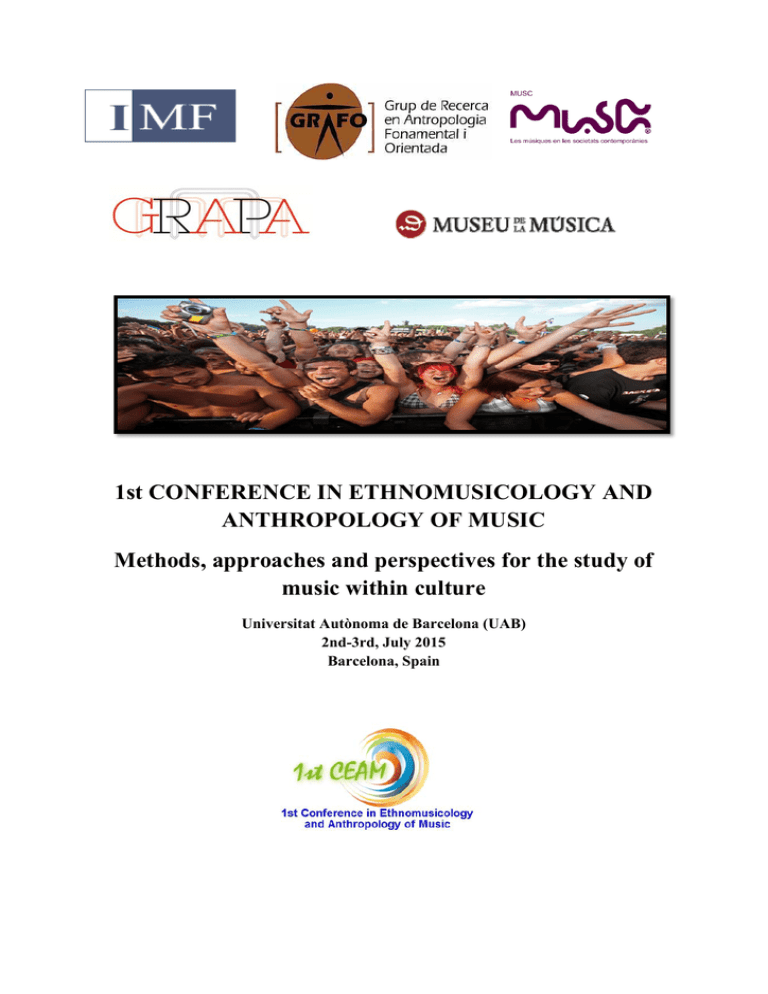
1st CONFERENCE IN ETHNOMUSICOLOGY AND ANTHROPOLOGY OF MUSIC Methods, approaches and perspectives for the study of music within culture Universitat Autònoma de Barcelona (UAB) 2nd-3rd, July 2015 Barcelona, Spain FIRST CALL FOR PAPERS February 2015 The egolab-GRAFO research group, at the Social and Cultural Anthropology Department (UAB), organizes the 1st Conference in Ethnomusicology and Anthropology of Music. Methods, approaches and perspectives for the study of music within culture. This event has been carried out in collaboration with the Research Group in Anthropology and Artistic Practices (GRAPA), the Research Group of Music in Contemporary Societies (MUSC), the Milà and Fontanals Institution (IMF-CSIC) and the Music Museum of Barcelona. We are pleased to invite proposals for this international event which will be held in Bellaterra (Barcelona), during the 2nd and 3rd July, 2015. This conference aims to stimulate the discussion among specialists from the Anthropological and the Ethnomusicological fields. These disciplines share theoretical and methodological frameworks when approximate to the study of culture. The practice of music, beyond its sound structures and performances, entails the use of cultural codes, implicit regulations, classifications and references to social orders which are part of symbolic systems within society. Figuring out these underlying logics help us in the better understanding and knowledge of socio-cultural, political and historical processes related with particular musical scenarios. Thus, the fundamental theoretical frames of contemporary Anthropology such as identities, migratory fluxes, globalization, market dynamics, among others, can be analyzed and conceptualized through the study of a cultural product, such as music. Thereby, Ethnomusicology focuses increasingly on socio-cultural and anthropological issues which appear implicit in the context of the execution, the consumption, the dissemination and the creation of musical products. As exclusive approach, Ethnomusicology provides the technical knowledge of the units that form the musical structures and the theoretical perspective to figure out them, according to specificities of each cultural context. This particular knowledge contributes, in most cases, to obtain complementary information which clarifies the one acquired by means of the anthropological analysis. In this way, is possible to understand the musical product in a holistic sense within the culture that produces/consumes it. In summary, the creation of an academic space is proposed to discuss perspectives and strategies that both disciplines share. By means of comparing and confronting particular cases, framed in homological contexts, is expected to contribute to the comprehension of the musical phenomenon. Therefore, we suggest the following key issues for the conference: 1. What? Why? For what? Conceptual frames, theory and methodology, applied to the study of music in its context With the main objective of establishing points of dialogue between Ethnomusicology and Anthropology, participants are encouraged to propose presentations that pose a debate on the various theoretical paradigms used to analyze the musical phenomenon. On this subject, questions arise such as: How music is presented, as an object of study? What parameters are taken into account and what are neglected? Is the musical analysis a means or a purpose? With this issue, is expected to encourage the discussion of new methods and perspectives that offer a significant improvement in the interpretation of the role of music in culture. 2. Ethnicities, nationalisms and musical practices in contemporary societies. Both disciplines have a wide corpus of case studies endorsing the relevance of the link between music and identity, in all its variances (ethnic, national, etc.). The approach over musical practices takes us to face socio-cultural contexts of great complexity and magnitude, in which music works as vehicle and tool to the identity expression. Despite this confluence of perspectives, we usually find some theoretical disconnections that generate discursive vacuums related to the interpretations of realities. This key issue is purposed to highlight those elements that appear as common in all case studies that present the music-identity relationship as the main idea. 3. Transnationalism and migratory fields: hybridization and representativeness of music in scenarios of mobility and interaction. Few phenomena have marked contemporary societies so much such as that of migrations. These processes, closely related to identity, appear as triggers of new strategies of identity demarcation and claim. Music participates in these processes as a key tool of expression and social cohesion. In spite of, there are few connections between the theoretical frameworks used to deal these kind of scenarios in which music takes on a significant role and appears as generator of very well delimited social spaces. Then, this issue is proposed as a bridge of dialogue between both approaches to these contexts. We encourage proposals which meet the main thematic guidelines, presenting a solid theoretical framework and structured methodology. We also welcome original research and studies which deal with artistic, traditional or popular musical practices, regardless the socio-cultural context or phenomenon that focus. The official languages of the conference are English, Catalan and Spanish; besides, a slide support in English will be required. Abstracts Proposals, of no more than 300 words (excluding bibliography), should be sent to Sara Revilla (sara.revilla@uab.cat) together with a short biographical note. The deadline for acceptance is April 5th, 2015. Proposals will be reviewed by the Scientific Committee of the Conference and results will be announced by May 3rd, 2015. Keynote speakers (to date) Dr. Josep Martí, Institució Milà i Fontanals, Consejo Superior de Investigaciones Científicas (CSIC, España). Scientific Committee Dr. Josep Martí (Departamento de Antropología, CSIC) Dr. Jaume Ayats i Abeyà (Museo de la Música de Barcelona/Departamento de Arte y Musicología, UAB) Dr. José Luís Molina González (Departamento de Antropología, UAB) Dr. Francesc Cortès Mir (Departamento de Arte y Musicología, UAB) Sara Revilla Gútiez (Departamento de Antropología, UAB) Martí Marfà i Castán (Departamento de Antropología, UB)
